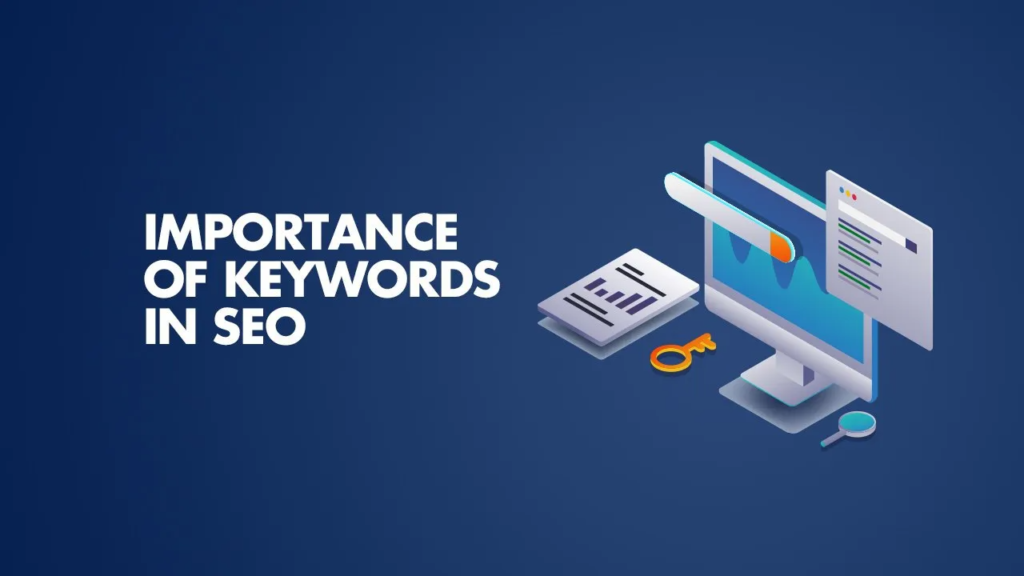
In the SEO and digital business field, The word “keyword” is really valuable. But what exactly is a keyword, and why is it so important? Let us explain what a keyword is, its function in SEO, and the types that are applicable to improve your online presence.
Keyword
It is nothing but a word or phrase that describes what your content is all and about. It is the term to be put into the minds of people looking for something on the Internet, whether it be information, products, or services. For example, if someone is looking for “best smartphones under $500,” this is the keyword that she would type to retrieve it.
Keywords are used by search engines such as Google to equate the questions asked by users to the more relevant content within their domain. Putting the correct keyword while optimizing your content improves your chances of getting found in search results and attracts enormous organic traffic to your website.
The role of keywords in SEO

Keywords act as a bridge between a user’s query and your content. The search engine understands that this is what your page is all about. Every keyword that you use will ensure that only your audience is immensely reached and discovered in the best meaningful way.
When it comes to putting keywords in your website articles, however, it isn’t merely about putting them to view in the content. Instead, modern-day SEO emphasizes valuable, quality content, which happens to include keywords sparingly. Overuse of keywords or “stuffing” keywords, in fact, gets the site penalized by many search engines.
Focusing instead on terms and phrases closely related to your main keyword, often referred to as Latent Semantic Indexing (LSI) keywords, helps you pile up the necessary relevance and depth in your content.
Types of Keywords
To truly understand how to optimize any content, it is their different types of keywords and their strategic use towards optimization. The types include:

Short-Tail Keywords
These are those broad or generic keywords that are composed of only one or two words, for example, “shoes” or “laptops.” These types of keywords usually capture a high search volume but have serious competition and bare broad intentions.
Example: “digital marketing“
Long-Tail Keywords
Long-tail keywords are highly specific terms which are typically made up of three or more words. They attract lesser search engines but convert at higher rates for they have a very specific audience.
Examples: “the best digital marketing strategies for small businesses”
Branded Keywords
These are keywords with a brand name associated with them, typically used by persons already aware of the brand or seeking for branded products and services.
Example: “Nike running shoes”
Non-Branded Keywords
These are words that have no mention of any brand but focus entirely on generic terms from non-brand keywords that bring in so many people.
Example: “comfortable running shoes”
Transactional Keywords
Transactional Keywords
They indicate the intention of purchase. Most of the time, they are used by those who are at the point of decision making or buying.
Example: “buy laptops online”
Informational Keywords
Are used by those who seek knowledge or answers to questions, such that they can even bring an example of a blog or educational write-up.
Example: “how to optimize a website for SEO”
Navigational Keywords
These help users find a specific website or page. They are typically used by people who know what they are looking for.
Example: “Facebook login”
Local Keywords
These are location-based, location-specific search-keywords, which are very critical to businesses with physical establishments.
Example: “best pizza near me”
Seasonal Keywords
These really matter with regard to certain times in the year, such as holidays or events.
Example: “Christmas gift ideas”
How to Use Keywords Effectively

- Step 1: Research, Thoroughly. Google Keyword Planner, SEMrush, or Ahrefs will help you find those keywords that are really aligned to the needs of your audience.
- step 2:Focus on Intent: Find the meaning of each keyword-whether it is for use information, navigation, or transaction purposes.
- step 3:Include LSI Keywords: Related terms or synonyms should be incorporated naturally; hence, a more comprehensive content is achieved.
- step 4:Avoid Over exhausted: Flow should be natural as writing so to avoid penalty in reading.
- step 5 :Analyze Performance: Monitor which keywords direct traffic and converts. Hence, you can refine your strategy.
Conclusion
Understanding the different types of keywords and how to apply them effectively can really make your SEO strategy shine. If you focus on quality content and relevant keywords, then you will attract your target audience, improve your rankings, and achieve your goals in digital marketing.
Mastering the art of using keywords wisely can really make your website flourish in the competitive world of online search.